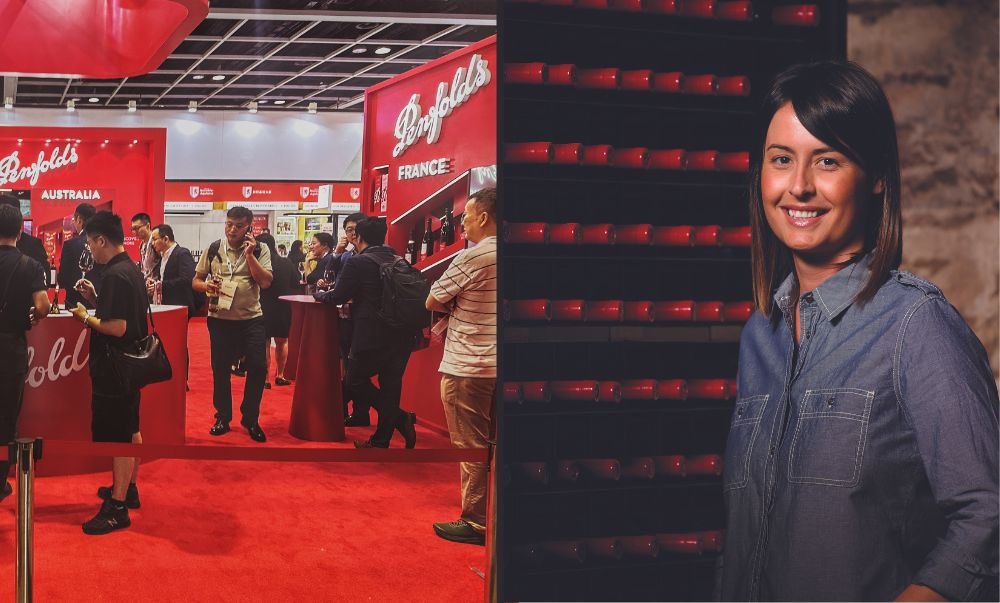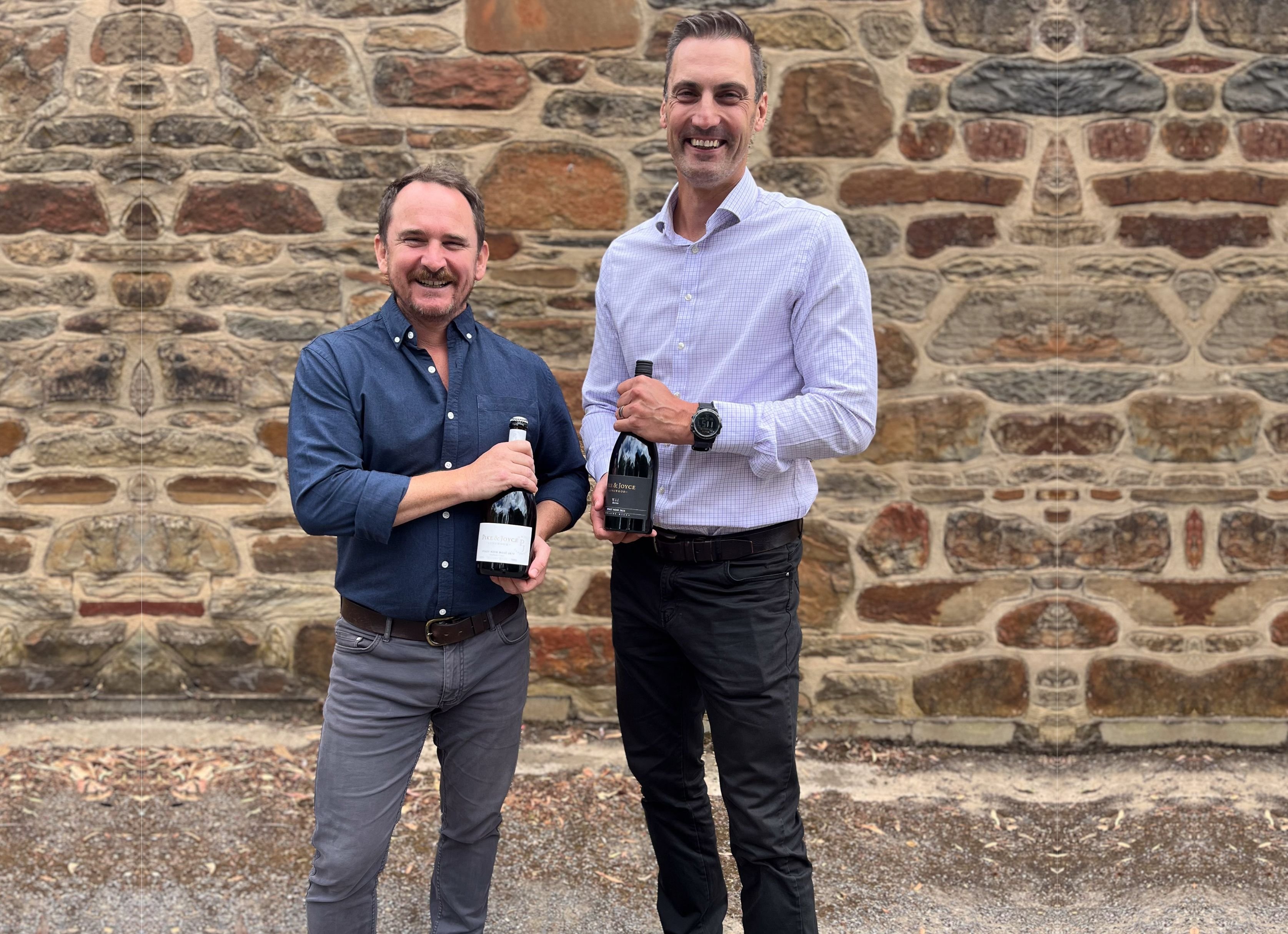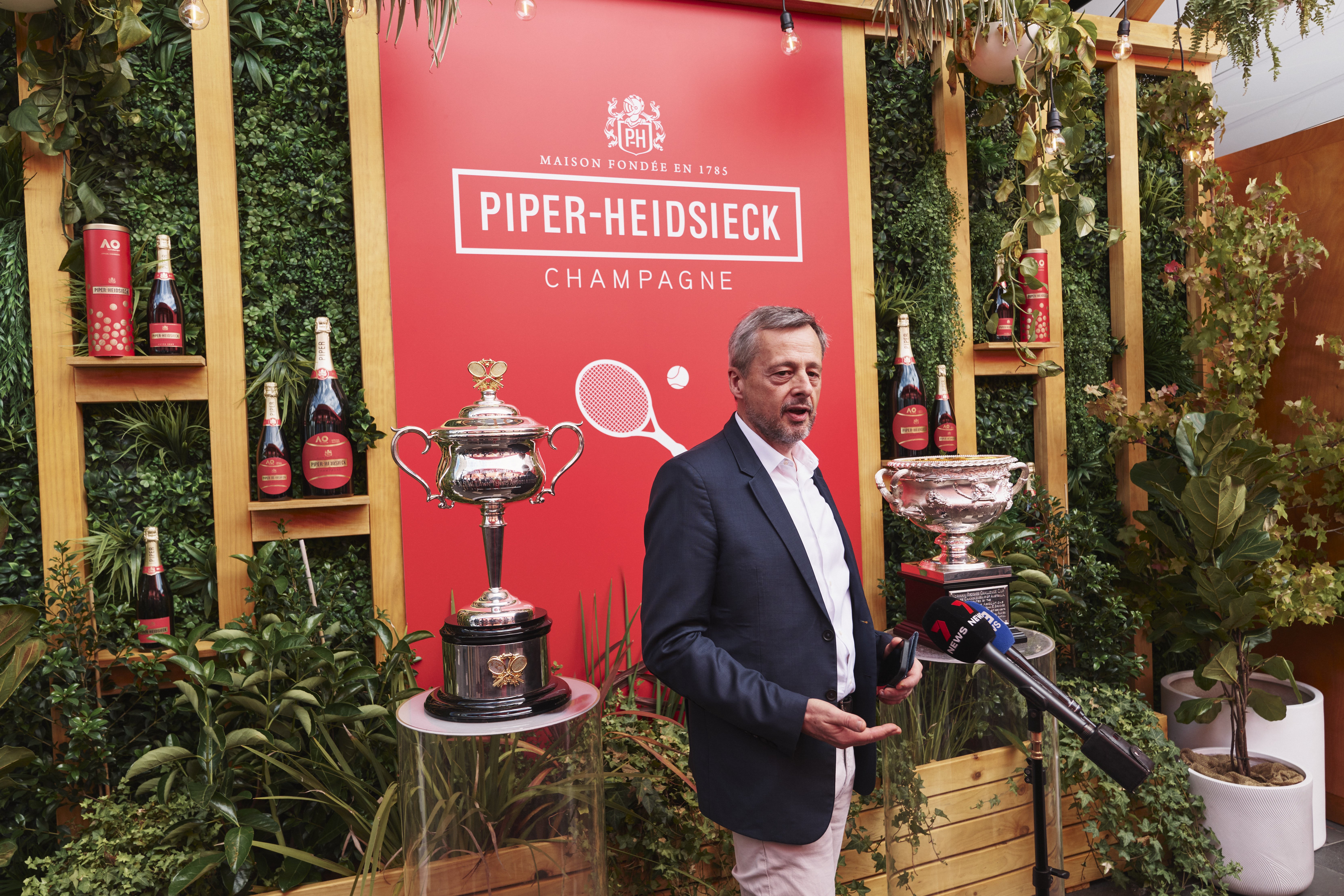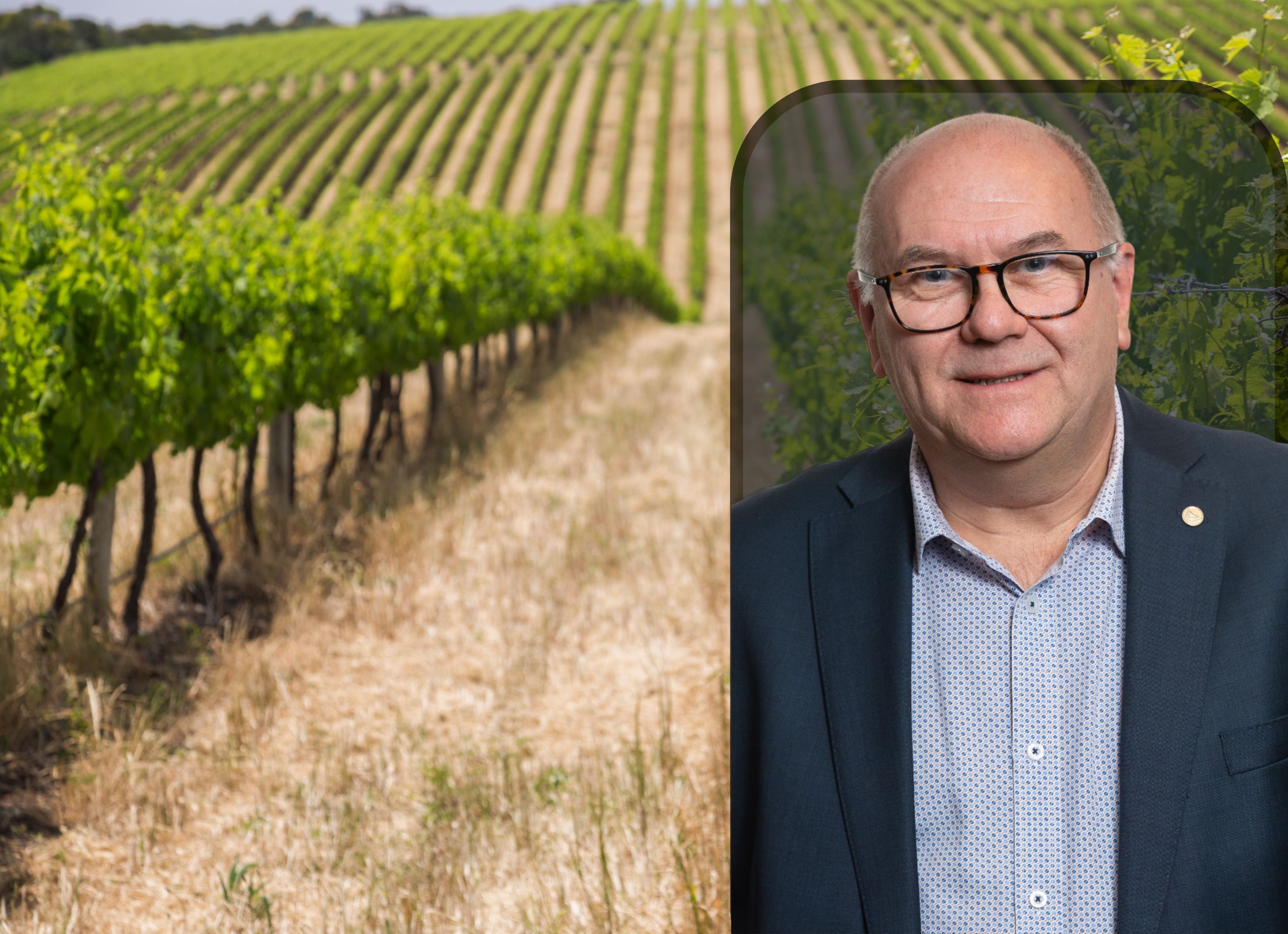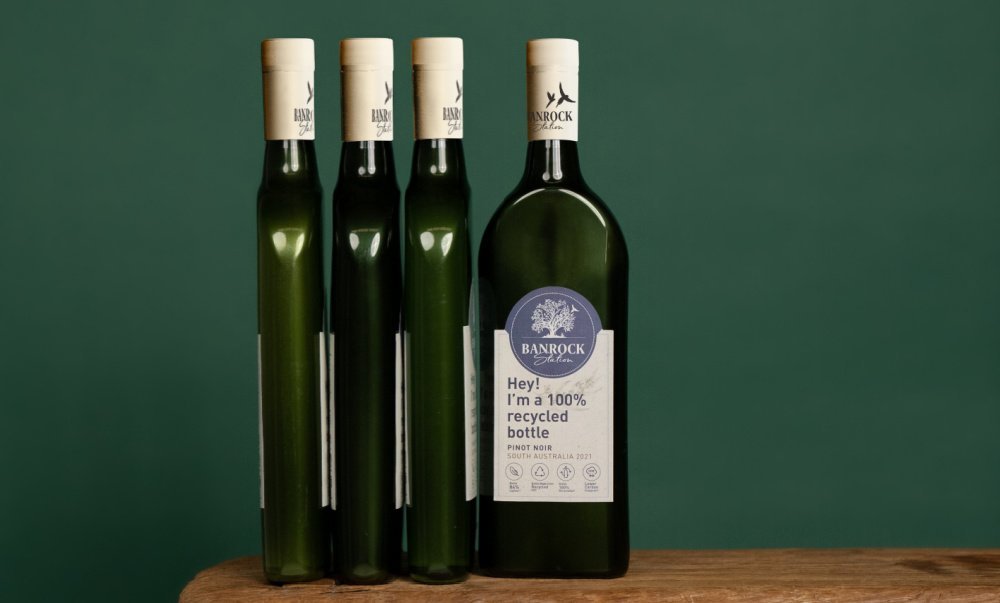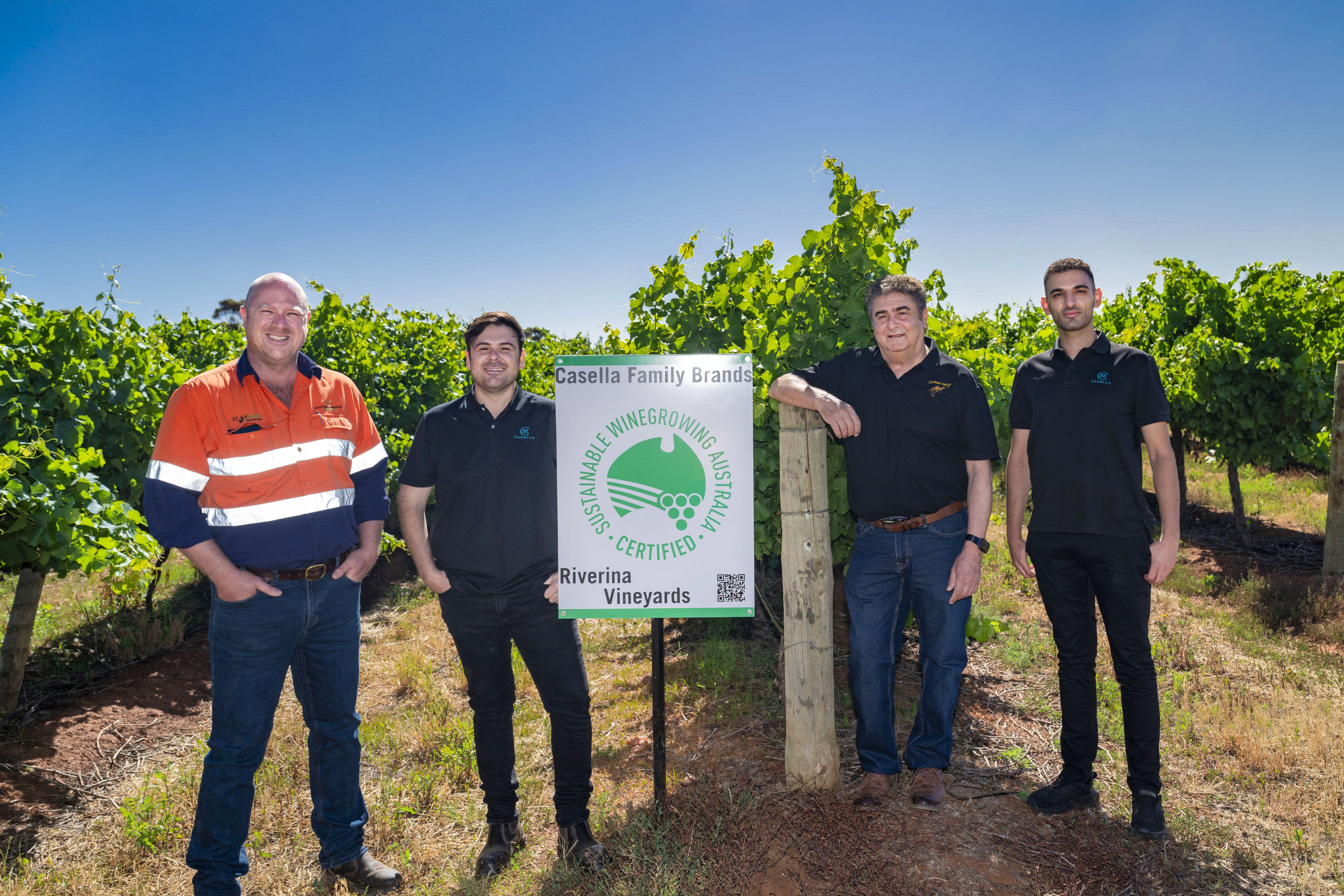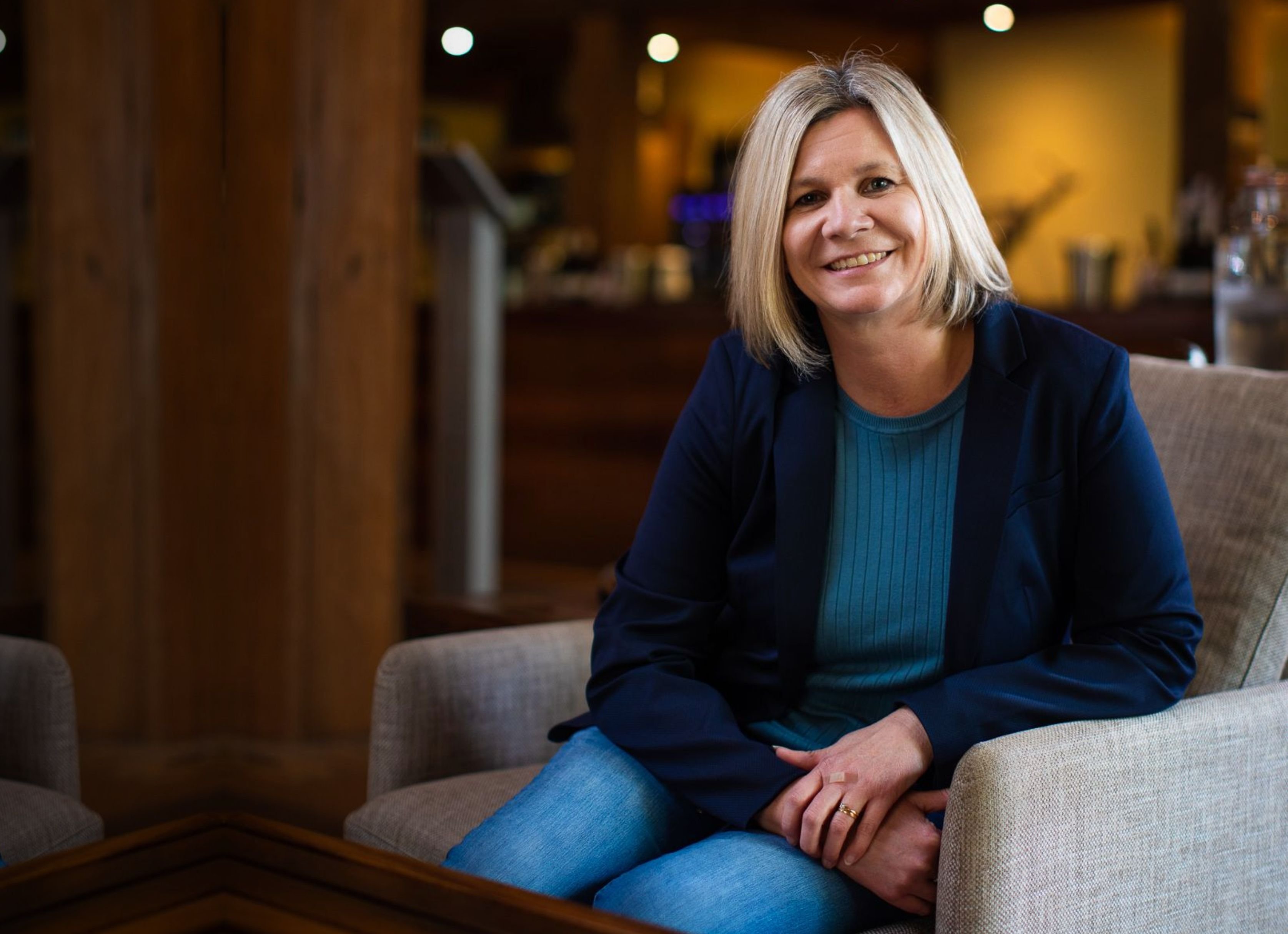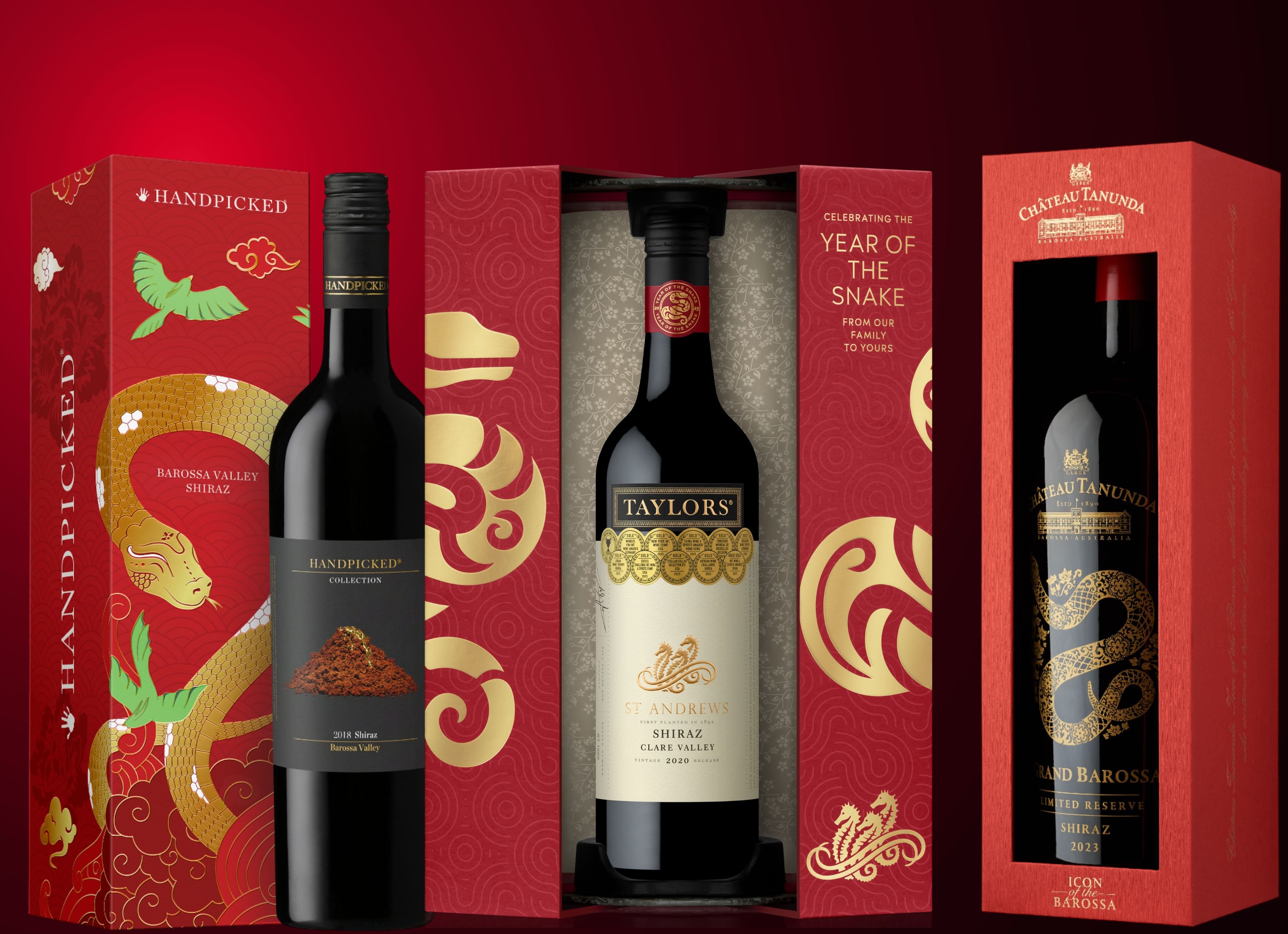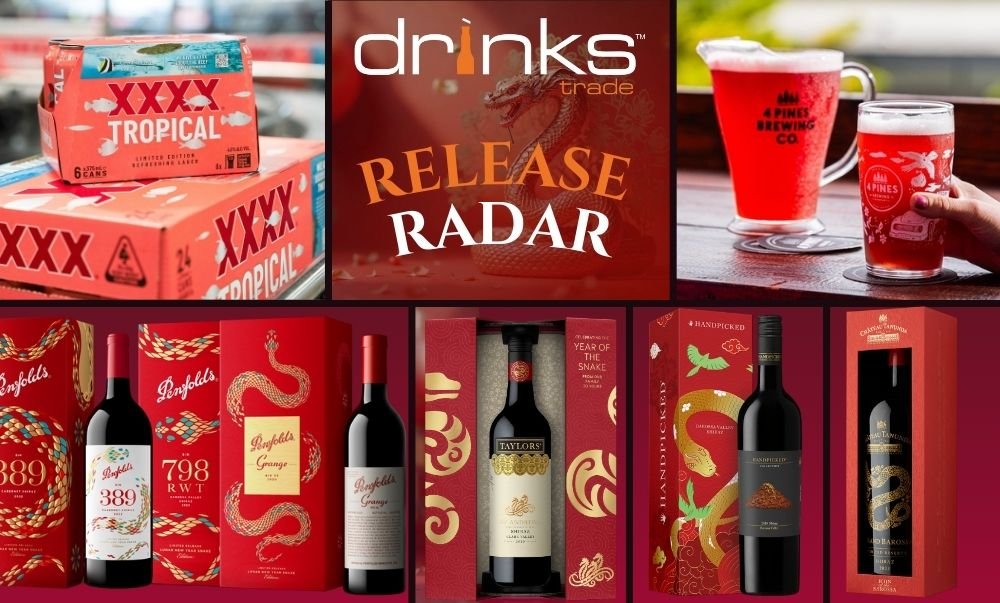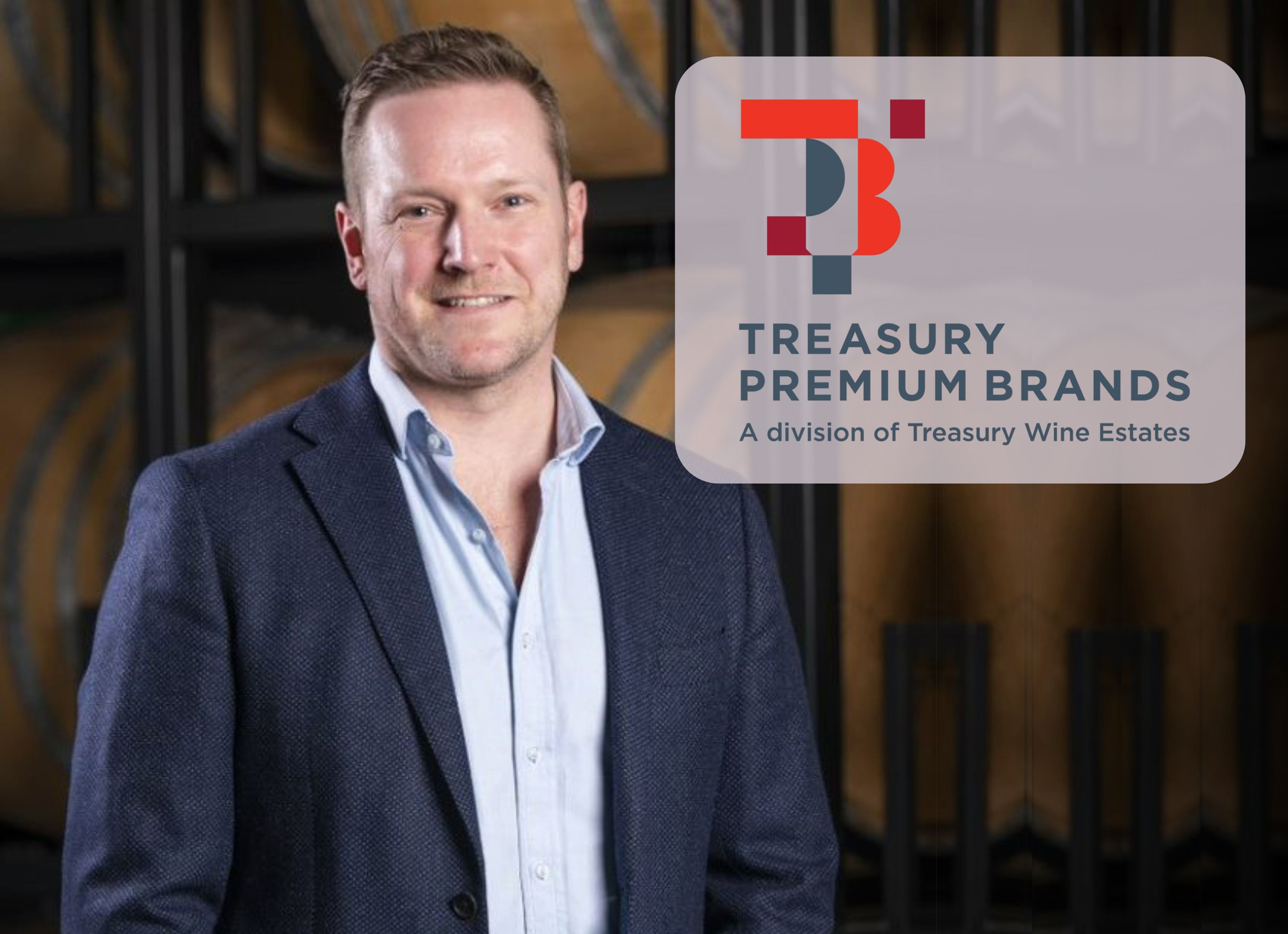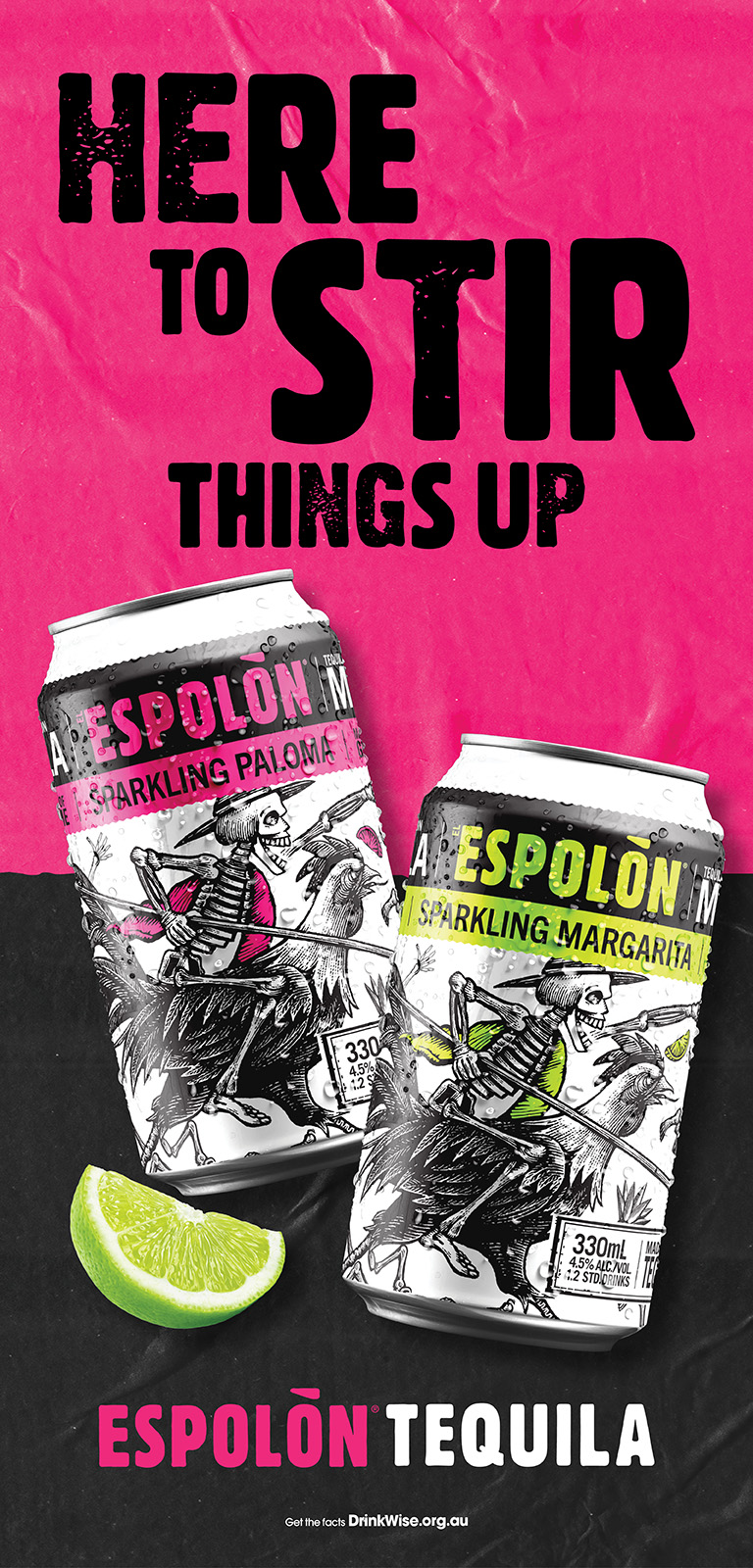Today at Vinexpo Asia, the Drinks Trade team sat down with Stephanie Dutton, Group Winemaker at Penfolds and the person in charge of its country of origin portfolio, to gain a better understanding of Penfolds' Chinese, French, and US offerings.
Drinks Trade: Can you introduce yourself and how you came to be Group Winemaker at Penfolds?
Stephanie Dutton: Yeah, the wine industry was always unexpected for me. I'm from Melbourne originally and my undergraduate was in science. More specifically, I was doing my honours in genetics and I was working like a lot of university students in hospitality and I was finding that I was far preferring to be surrounded by wine lists and great restaurants in Melbourne than I was probably for my genetics work. And so, I did a lot of short courses and [those] short courses sort of all finished eventually and I realised that the only course left was the long course, you know, if I wanted to make a career out of this.
And so, I did my master's in winemaking and that's what landed me with Penfolds in South Australia.
DT: What does being Penfolds’ Group Winemaker involve?
SD: I'm now Penfolds Group Winemaker - the group refers to the fact that yes, we are anchored and have our base in Australia but we also now have winemaking operations on the ground in the US, in France and early trial work in China as well.
Now, as a global winemaking team, we are in two hemispheres and four countries and it's our new normal; it's a busier normal, but it's good!
DT: How do you go about managing such a large global portfolio?
SD: The best way to manage it is when you are really clear on what your philosophy is as a winemaking team.
Recently I was hosting a master class and [someone] said Penfolds/Australian winemakers have sort of been the rule breakers, you know, in terms of multi-regional blending, cross-country blending now as well, And I sort of thought about that for a second and whilst I agreed, I sort of turned around and said, I don't think we ever even knew that there were rules to break! It's just part of our culture.
And I think Penfolds specifically, chasing that excellence regardless of what rules might exist, that's been our clear goal regardless of what country we're in.
We've also had really long apprenticeships in the Penfolds winemaking team. I've been with Penfolds now for 17 years, but a lot of my colleagues are 30 years, 40 years.
I think our understanding of the craft and house style has been a non-negotiable when we've turned up in the industry. You share knowledge, you share information, and I think it's great for the wine industry.
DT: When making Penfolds’ Country of Origins wines, are you adjusting the profile to suit local markets or are you striving to achieve a specific house style?
SD: I like to think it would be really easy to do one or the other, and the art and the craft and the excellence comes from probably balancing both. It would be really easy for us to go into these northern hemisphere countries, California, Bordeaux, China, Yunnan and Ningxia, and it would be really easy for us to do everything exactly the same as we always have. But if we did everything exactly the same, we may as well stay at home and just keep doing more of what we're doing at home. It would also be really easy for us to turn up and do everything differently and to follow the lead of what has worked in the region.
I think the fact that we've had such long apprenticeships means that the wines were always going to be authentically Penfolds with house style. So when we reframed our vision as not just to make the wines as ‘Penfoldsy’ as they could be, but to make the wines as best as they could be, that's where the balance of both came in.
So for example, using heading downboards during fermentation - which is to submerge the cap during rack and returns - it's something that is really contributing to house style, and we do that in the northern hemisphere as well. Understanding the viticulture in the different regions, the soil types, the clones that work, that is something that we've wanted to adapt and learn when we're in region. Hopefully if we're doing our job well, we're making close ties with the teams on the ground that have decades of experience in some of these regions, but we're also sharing what works for Penfolds as well; two-way street, learning from each other.
DT: You’ve spent a fair bit of time working in the US on Penfold’s Napa Valley wines. Can you talk a little bit about Penfods’ US portfolio?
SD: The very first vintage was from 2018, but I don't think people realise the amount of trial work that was sort of bubbling away for decades beforehand before we were ready to press go.
In the late 1990s, when we were owned by Southcorp at the time, we acquired a plot of land in Paso Robles, and that is known as the Camatta Hills Vineyard. We took genetic material from Australia, from Kalimna and Magill Estate - two of our most prized blocks back home in Australia - and we took those vine cuttings, that genetic material, over to Paso Robles and developed a vineyard… That's what we've been doing the trial work with ever since.
DT: How does the acquisition of the DAOU tie into Penfolds’ US program?
SD: Separate to Penfolds, but obviously we both exist under the same umbrella with the same company now, so we're neighbours.
DT: How has reception for the US portfolio been so far?
SD: The US portfolio has had really good traction with our US collectors and consumers, and it's certainly helped amplify the Penfolds brand in the market. I think what is really interesting for high-evolved wine collectors now in the US is that you have an Australian portfolio that they were acquainted with, a US portfolio now from the same brand that they're probably a little bit more familiar with geography-wise, and they're now swapping between the two and sharing information and it's building the brand over there, so, from a winemaking point of view and with our high-end collectors and loyalists, it's been fantastic.
DT: What are you most excited for in the near to mid-term future?
SD: Firstly, we turn 180 years old this year, so whilst it's really great to reflect on the past 180 years, we are asking ourselves the question, ‘what does the next 180 years look like?’
I often talk about Penfolds winemaking eras in two parts. Originally we were mostly a fortified business up until the 1950s - most of Australia as an industry was fortified-dominant up until the 1950s - and we credit Grange as being a wine that probably shifted the dial into what we call our modern winemaking era, where this whole new family of wines grew from the first experimental vintage of range in ‘51. I actually think we're on the edge of our third era right now, but we don't know it because we're in it; it's this global winemaking era of premiumization, going where fruit grows best, being curious about other regions, regardless of borders or boundaries. I think in 15 years time, we will be reflecting on this as our third winemaking era, but we kind of don't know it right now because we're in it.
The other thing that I'm really passionate about for the future of Penfolds is I think we're getting a lot better at understanding the concept of regenerative viticulture as well, you know, making sure that when we talk about sustainability, everyone often will go to emissions, green energy environment; but soil health, the health of our farmers, the longevity of our farmers, the ability for them to pass on their land in better condition to the next generation compared to the current, I think is something that we are getting really good at understanding. It also taps into quality. I think when the two are aligned, which they are at the moment with the work that we're doing, that is what I look forward to seeing the results of over the next 10 years, and more.
DT: Any final message to trade?
SD: No, other than I love being able to spend the time and travel away from Australia to see how our brand shows up in other markets. And whilst Australia is always, as I said before, where our home is anchored, we now realise that our footprint is very global, not just from a sales point of view and a marketing point of view anymore, but from a winemaking point of view, and so being able to spend time in other markets, see the support and the faith behind Penfolds, but also learn from these markets is incredibly exciting.
Drinks Trade staff caught up with Stephanie at Vinexpo Asia 2024. More exclusive interviews and insight gathered from the show will be posted here soon.
Share the content
